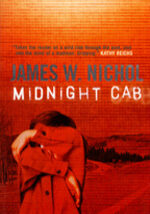In 701 B.C. the Assyrian empire was in its ascendancy. It had already vanquished the kingdom of Israel to the north including the capital at Samaria. It then prepared an assault on Judah and its capital at Jerusalem.
But in one of those significant events that changes the course of world history, Assyria was repelled. Jerusalem was saved until 586 B.C. when the Babylonians sacked the city, forcing its leadership class into exile.
Henry Aubin, in a major feat of scholarship, determines that Jerusalem was aided by a Kushite army from Africa which had marched northeast from the Nile valley. While the Bible attributes the Assyrian retreat to an angel and secular commentators cite pestilence, Aubin, in a meticulously documented work, demonstrates that an alliance with the African nation of Kush bolstered Jerusalem’s defences.
Kush, also known as Nubia, was located in what is now southern Egypt and northern Sudan. A monarchy that existed for more than 1000 years, from 900 B.C. to A.D. 350, Kushites held sway over Egypt from 712 B.C. to about 660 B.C. Of Egypt’s 31 dynasties, this, the 25th Dynasty, is the only one that all scholars agree, was black.
The commander of the Kushite expeditionary force was Taharqa (or as the Bible calls him Tirhakah). This Kushite prince, who had his own interests in halting Assyrian expansion, likely caught the aggressors by surprise as they prepared their siege of Jerusalem.
Aubin offers a thrilling military history and a stirring political analysis of the ancient world. He also sees the event as influential over the centuries.
The Kushite rescue of the Hebrew kingdom of Judah enabled the fragile, war-ravaged state to endure, to nurse itself back to economic and demographic health, and allowed the Hebrew religion, Yahwism, to evolve within the next several centuries into Judaism. Thus emerged the monotheistic trunk supporting Christianity and Islam.

“Takes the reader on a wild ride through the past, and into the mind of a mad man. Gripping.”
Kathy Reichs
“Plotting and pacing are superb…his dialogue is smart and real…But the characterization is where Nichol shines.â€
Detroit Free Press
“This is an engaging thriller that never lets its metaphorical foot off the clutch and races down mysterious roads, all leading back to the past, of course — with the aplomb of Harlan Coben. It also conjures up one of the most sinister and unforgettable villains crime fiction has drawn in a long time.â€
The Guardian /London
“…a compelling read.â€
Sunday Telegraph/UK
“Nichol’s elegantly simple and taut prose becomes addictive.â€
The Globe and Mail
Mass market reissue McArthur & Co.
Sony Japan 2006
Newton and Compton Italy 2006
Droemer Germany 2005
Canongate U.S.A. 2005
Fleuve Noire France 2005
Luitingh-Sijthoff Netherlands 2005
AST Russia 2005
C & T Poland 2005
Canongate United Kingdom 2004
Knopf Canada 2002
Rest of World: Canongate
Midnight Cab
•Bestseller in Germany –more than 500,000 copies sold to date!
•Shortlisted for 2004 UK Gold Dagger Award
•Arthur Ellis Award for Best First Crime Novel
Walker, age 19, has come to the city to unearth the mystery of his early life. He was left at age three, terror-stricken beside a deserted country road, clutching a wire fence. He had no identification.
Two slim clues were in his pocket: a photograph of two children and a chatty letter from a teenage girl. His clothes indicated that he had been well cared for. A dim memory of his mother makes him feel that he was loved.
Walker’s quest for his identity is more dangerous than he knows. Aided by his girlfriend Krista, he unearths the horrific truth, driving them into the deadly grasp of Bobby, a young man who has matured from early cruelty to murderous pleasures.
James W. Nichol, a prominent playwright and screenwriter, lives in Stratford, Ontario, Canada. His second novel Transgression, will be published in Canada in Spring 2008. It has already been translated and issued in German to wide acclaim.